-
About
- About Listly
- Community & Support
- Howto
- Chrome Extension
- Bookmarklet
- WordPress Plugin
- Listly Premium
- Privacy
- Terms
- DMCA Copyright
- © 2010-2024 Boomy Labs

Listly by Umbrella Health Care Systems
Dementia is a term used to describe a group of symptoms affecting memory, thinking and social abilities severely enough to interfere with your daily life. It isn't a specific disease, but several diseases can cause dementia.
Though dementia generally involves memory loss, memory loss has different causes. Having memory loss alone doesn't mean you have dementia, although it's often one of the early signs of the condition.
Alzheimer's disease is the most common cause of a progressive dementia in older adults, but there are a number of other causes of dementia. Depending on the cause, some dementia symptoms might be reversible.
https://www.umbrellamd.com/e-visit

Alzheimer’s disease is the most common form of dementia. About a third of people 85 and older show signs of the disease. The genes you get from your parents play a part at this age, but so do things like diet, exercise, your social life, and other illnesses. Dementia isn't a normal part of getting older.
https://www.umbrellamd.com/e-visit
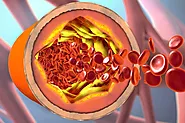
It could lead to a heart attack or stroke, which makes dementia more likely. Heart disease is usually caused by plaque buildup in arteries around your heart (atherosclerosis). That can slow blood flow to your brain and put you at risk for stroke, making it harder to think well or remember things. And many things that cause heart disease -- tobacco use, diabetes, high blood pressure, and high cholesterol -- also can lead to dementia.
https://www.umbrellamd.com/e-visit

An English study found older adults who lived in areas with the highest yearly concentration of air pollution were 1.4 times more likely to get dementia than people who lived in places with cleaner air. Nitrogen dioxide (NO2) and particulate matter (micro-particles in the air you might not see but can inhale) caused the most harm.
https://www.umbrellamd.com/e-visit
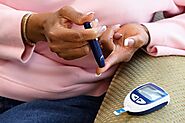
Doctors aren’t sure exactly why people with diabetes get dementia more often. But they do know that people with diabetes are more likely to have damaged blood vessels. This can slow or block blood flow to the brain and damage areas of the brain, leading to what’s called vascular dementia. Some people may be able to slow brain decline if they keep diabetes under control with medicine, exercise, and a healthy diet.
https://www.umbrellamd.com/e-visit
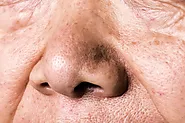
Older people who have trouble identifying odors are more than twice as likely to have dementia as those with a sharp sense of smell. Almost half of people in an American study who’d been diagnosed with dementia had had olfactory dysfunction 5 years before. A simple smell test can flag a need for early treatment.
https://www.umbrellamd.com/e-visit
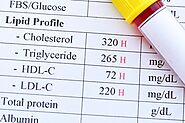
High levels, especially in middle age, are linked to obesity, high blood pressure, and diabetes. All of these raise your risk of dementia, but it’s not yet clear if the cholesterol by itself adds to the problem. Some research shows that high cholesterol in midlife could raise your chances of Alzheimer’s disease later in life, but the exact link isn’t clear.
https://www.umbrellamd.com/e-visit
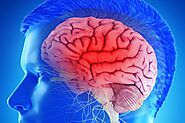
Herpes simplex virus 1 (HSV1), or oral herpes, usually appears as blisters or sores on or around your mouth. But the virus can also get into and infect your brain. A recent study linked HSV1 with a decline in some mental functions, but not to dementia. However, lab studies on a realistic brain model showed HSV1 triggered major Alzheimer’s signs, including swelling and clumps of protein in the brain tissue.
https://www.umbrellamd.com/e-visit

If you have depression, or have had it in the past, you may be more likely to get dementia. Scientists aren’t yet sure that it’s a cause. It may simply be an early symptom or a sign of other causes like Parkinson’s disease or Huntington’s disease. Talk to your doctor or a therapist if you feel down for more than 2 weeks, and right away if you think of harming yourself. Therapy and medication can help with depression.
https://www.umbrellamd.com/e-visit

Super-starchy and processed foods never make the “healthy” list. But did you know eating the two together can up your chances of having dementia? French researchers found people who developed dementia often paired processed meats – i.e. ham, pepperoni, and deli meats – with high carbs like potatoes, alcohol, and baked sweets. Meanwhile, people who stayed healthy ate their share of meat – but enjoyed it with fruits and veggies.
https://www.umbrellamd.com/e-visit

A single, mild traumatic brain injury may not make you more likely to get dementia later in life. But more severe or repeated hits or falls could double or quadruple your chances, even years after the first injury. Get to the hospital if you’ve hit your head and you pass out or have blurry vision, or feel dizzy, confused, nauseated, or become sensitive to light.
https://www.umbrellamd.com/e-visit

Umbrella Health Care Systems provide complete solution for health related problems.
https://www.umbrellamd.com/